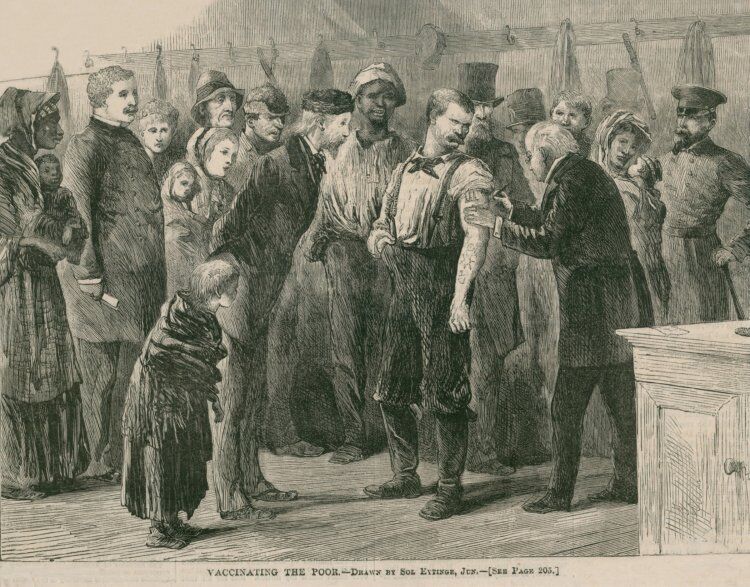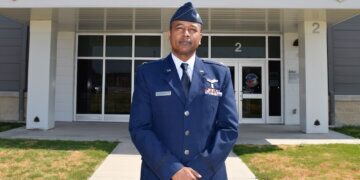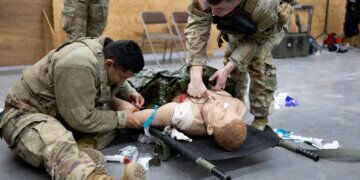A World War I veteran and member of the Medical Reserve Corps is credited with developing an approach to administering the smallpox vaccine that more than quadrupled its efficacy.
Louis T. Wright established the intradermal method – meaning the inoculation occurs within or between layers of skin. According to “Black Surgeons and Surgery in America,” edited by Dr. Don K. Nakayama, the difference between the previous method and Wright’s approach was stark — “a 70% take rate compared with 8%.”
“Because of him soldiers were effectively inoculated,” Nakayama told Reserve + National Guard Magazine. “He learned how to do it correctly because he had a good medical education [at Harvard].”
At that time, Black medical students were rarely admitted to schools other than Meharry or Howard. Wright, however, was part of the less than 15% of Black physicians who had graduated from a “white” medical school as of 1950. But his journey hadn’t been easy.
In 1911, as a young, aspiring physician, Wright walked into the Harvard Medical School dean’s office to interview for admission. Though the odds were against him, it was not in Wright’s nature to give up so easily.
“He had to persevere because there were some very powerful interests against him,” Nakayama told Reserve + National Guard Magazine.
According to “Black Surgeons and Surgery in America,” the dean had mistaken Wright’s degree as being from Clark University, the graduate research institution — not the freedmen’s school in Atlanta. When pressed by Wright, the dean agreed to admit the young man should he pass an on-the-spot examination.
Wright gained admission and graduated cum laude, as well as fourth in his class. Despite these achievements, he was denied internships at three different white hospitals, forcing him to complete an internship at the all-Black Freedmen’s Hospital in D.C.
But as the U.S. was thrust into World War I, Wright enlisted and was commissioned as a first lieutenant in the Medical Reserve Corps of the U.S. Army.
“I think the military gave him the opportunity to be held as an equal,” Nakayama told Reserve + National Guard Magazine. “They didn’t have conscripted Black military at that time. So he was the surgeon for all the soldiers.”
Born in La Grange, Georgia, in 1891, Wright was shaped by both the Jim Crow South and the Black men who helped raise him. His father, who died when Wright was 4 years old, was born a slave but became a doctor and eventually a preacher. Wright’s mother went on to marry William Fletcher Penn, also a doctor and the first Black medical graduate of Yale University.
From a young age, Wright was opposed to the idea of “separate but equal” — the rule that restricted access to white facilities, including medical and educational institutions, for Black Americans. In the desegregated Army, however, Wright discovered an easier path to success.
He quickly rose to the rank of lieutenant colonel in the Medical Reserve Corps, and despite not being promoted to captain until after his discharge — when he also received a Purple Heart — Wright was acknowledged for his abilities as a surgeon.
“He was so effective in the western front for the American Expeditionary Forces that he was Surgeon in Charge in everything but name [at his base hospital in France],” Nakayama told Reserve + National Guard Magazine.
But Wright is best known for his civil and social accomplishments – among them being credited with shaping the integration of U.S. medicine.
In a little over two decades following the war, he went from being the first Black physician appointed to the staff of Harlem Hospital (or any city hospital, for that matter) to serving as its director of surgery and, subsequently, president of the hospital’s medical board, according to the book “Black Pioneers of Science and Invention,” written by Louis Haber.
Through his work at Harlem Hospital and with the NAACP, of which he’d been an active member since 1917, Wright fought back against the medical establishment, opposing the creation of separate medical and educational facilities.
Believing the American Medical Association (AMA) was responsible for perpetuating many of the inequalities in medical care, Wright often spoke out against the organization. Haber wrote in “Black Pioneers of Science and Invention,” that Wright once stated the AMA “demonstrated as much interest in the health of the Negro as Hitler has in the health of the Jew.”
Though he died at the age of 61 in 1952 — the result of complications from being gassed during the war — Wright’s accomplishments were many.
“With a commanding personality and holding key positions in both medicine and racial politics, he shaped the integration of U.S. medicine,” “Black Surgeons and Surgery in America” reads. “His efforts came to fruition 12 years after his death, when the Civil Rights Act of 1964 outlawed discrimination on the basis of race in all public and federally supported facilities, including hospitals and medical schools.”
Read comments





























